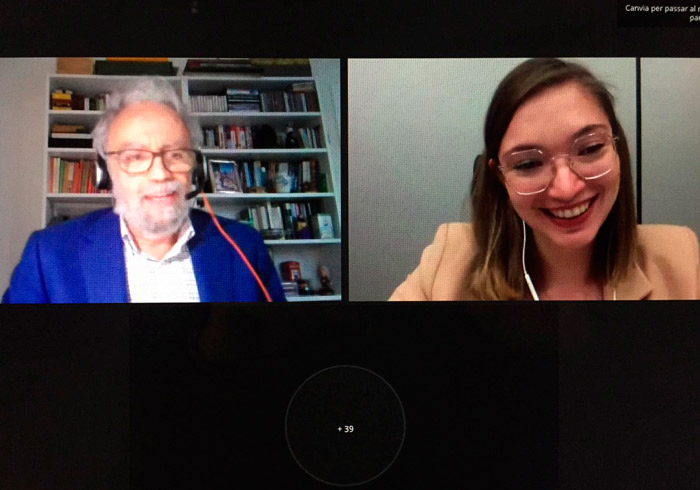Users
Social media
- More details here...
- Address
Parc Científic de la Universitat de València C/
Catedrático Agustín Escardino, 9
46980 Paterna (Valencia) Spain - Email:
iu.i2sysbio@uv.es - Phone:
(+34) 963544810
- Address
Links
Kristie Tanner defends her doctoral thesis on the microbiota of solar panels

Investigation & Education
Thesis
Kristie Tanner defends her doctoral thesis on the microbiota of solar panels

This doctoral thesis, directed by Manuel Porcar, Cristina Vilanova and Juli Peretó, compares the various microbiotas isolated from solar panels from different locations, explores the antioxidant properties of some of their bacteria and describes Sphingomonas solaris, a new species isolated from a solar panel in Boston. The results of the thesis have been published in the journals Frontiers in Microbiology, Environmental Microbiology Reports, International Journal of Systematic and Evolutionary Microbiology and Microbial Biotechnology. The thesis was defended on February 15, 2021.
The main objective of the thesis “Life under the sun: microbial ecology and applications of the solar panel microbiota” was the bioprospecting of the microbiota of photovoltaic solar panels. The thesis followed two main lines: the study of the ecology of microbial communities and the potential applications of the anti-stress activities present. First, the taxonomic and functional diversity of solar panels located in different geographical locations was compared: Valencia, Boston and Berkeley (approximately at the same latitude) and solar panels located in Antarctica and within the Arctic Circle. A notable similarity was observed in the microbiological composition of the solar panels, regardless of their location. Likewise, a study of microbial colonization of solar panels was carried out over a period of two years and the effect that these communities could have on the efficiency of photovoltaic panels. The plates begin to be colonized by generalist bacteria and, later, the extreme conditions (high irradiation, desiccation, wide thermal oscillations) select a community enriched in microorganisms adapted to those conditions. No significant influence of biofilms on photovoltaic efficiency was found. On the other hand, most of the bacteria present in these communities produce abundant carotenoids. Using a bioassay on the nematode Caenorhabditis elegans, the anti-stress effects of these bacteria were explored and some strains were described with a notable effect on the model organism on its longevity, resistance to oxidation and protection against ultraviolet light. Solar panels can be a source of new microorganisms of industrial interest. This research allowed us to describe a new bacterial species, Sphingomonas solaris, isolated from a solar panel at the Arnold Arboretum in Boston.
Kristie Tanner's doctoral thesis has been developed in the biotechnology company located in the Scientific Park of the University of Valencia Darwin Bioprospecting Excellence in collaboration with the Biotechnology and Synthetic Biology group of the I2SysBio under the supervision by Manuel Porcar (Researcher at the University of Valencia), Juli Peretó (Professor of Biochemistry and Molecular Biology at the University of Valencia) and Cristina Vilanova (Scientific Director of Darwin). During the development of the thesis, Kristie Tanner has been the beneficiary of a contract from the MiCInn Industrial Doctorate program and carried out a research stay at Harvard University with help from the Real Colegio Complutense. The panel was made up of José Luis García (CSIC), Trent Northen (Joint Genome Institute, Berkeley National Lab, California) and María Lluch (CRG and Pulmiobiotics SL), who rated the thesis as outstanding.


